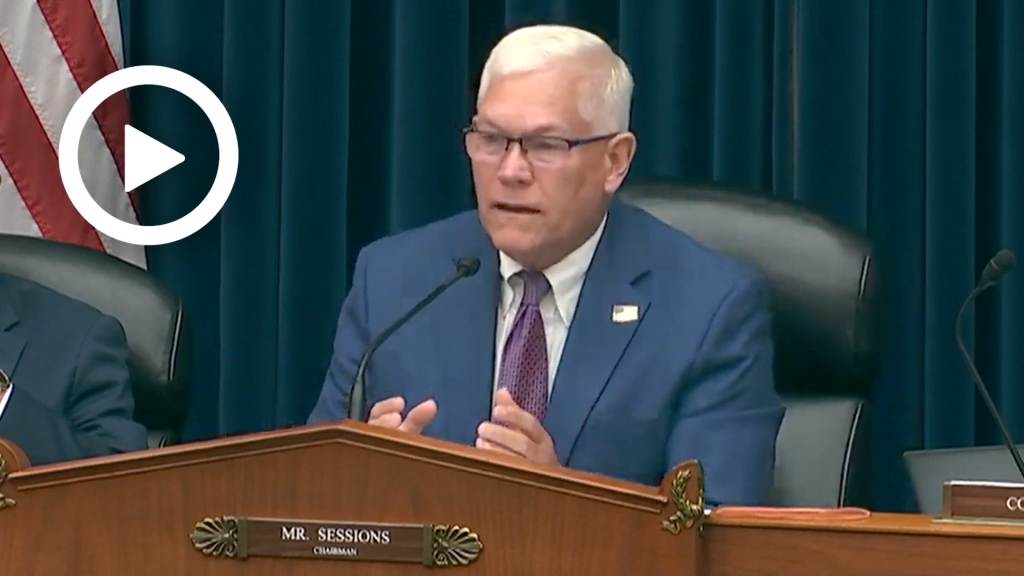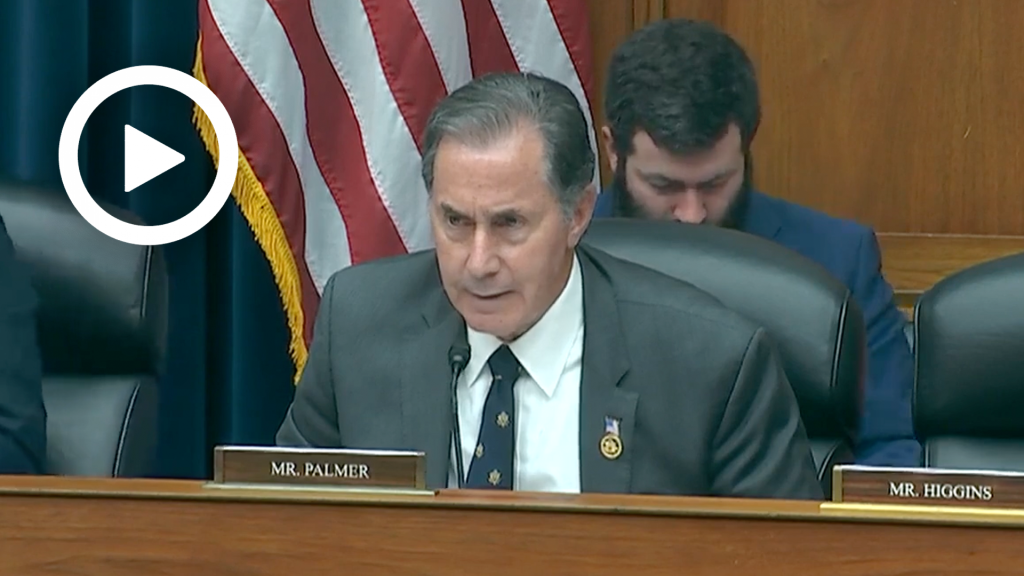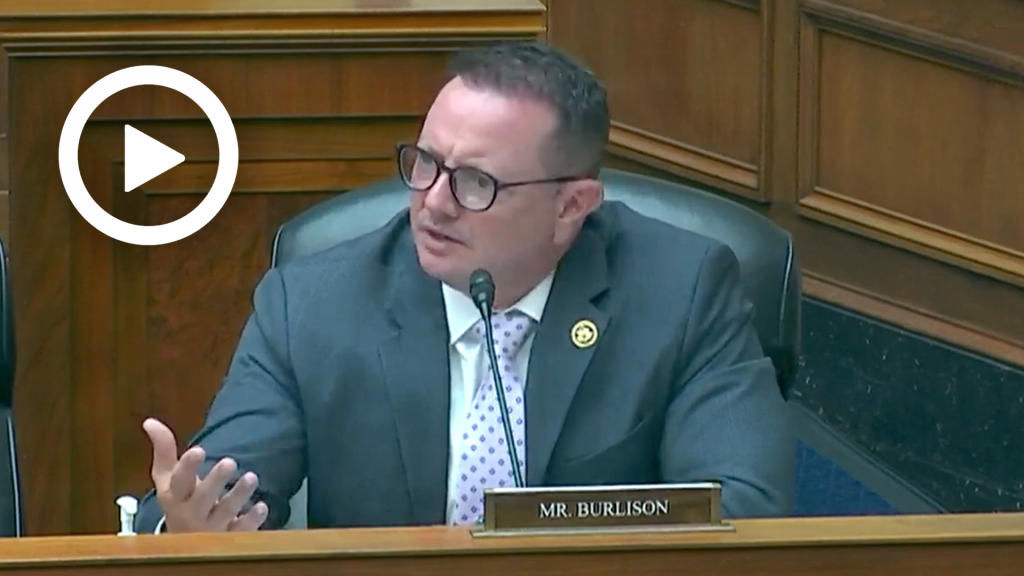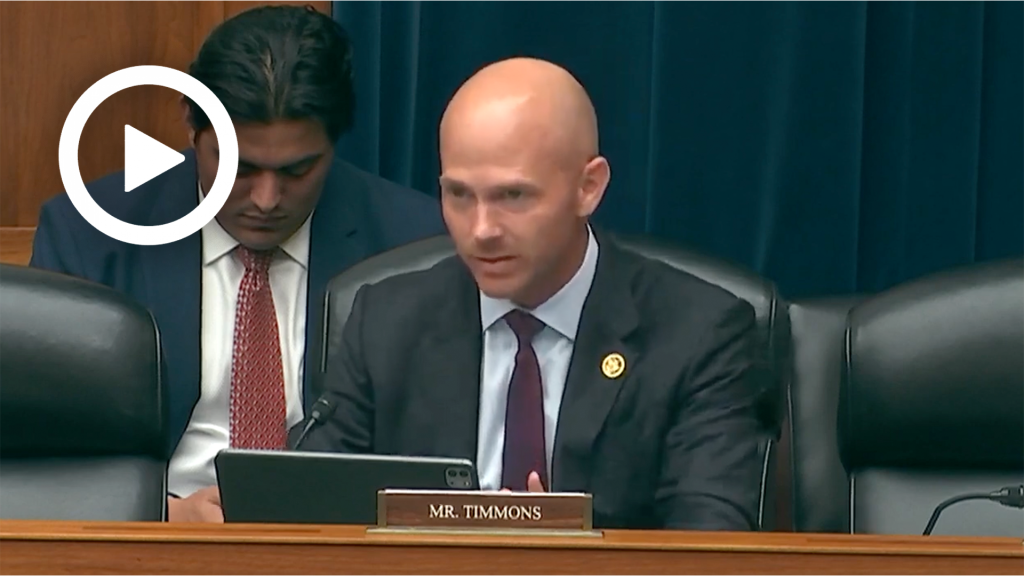WASHINGTON—The Subcommittee on Government Operations and the Federal Workforce today held a hearing titled “Where Do We Go From Here? Examining a Path Forward to Assess Agencies’ Efforts to Prevent Improper Payments and Fraud” to examine the effectiveness of existing oversight mechanisms in federal agencies to identify and prevent improper payments and fraud. With the staggering magnitude of fraud and improper payments present in key pandemic-era programs, Congress can work with federal agencies to employ proactive, data-informed measures to prevent and identify fraud across the federal government.
“Every dollar that goes to a fraudster doesn’t go to the small business, to the unemployed, to others that Congress were intending to help.”
Key Takeaways:
It imperative that federal agencies adopt data-led prevention practices to stay one step ahead of criminals.
- Mr. Michael Horowitz, Chair of the Pandemic Response Accountability Committee (PRAC), discussed the need to renew the analytics platform PACE to prevent and identify multi-program and identity related fraud that occurred during the pandemic.
- “In early 2021, Congress provided $40 million dollars to the PRAC to create and operate what we’ve referred to as the Pandemic Analytic Center of Excellence, or PACE, through 2025. […] Unfortunately, this fraud-fighting tool, which should be expanded to prevent improper payments in non-pandemic programs, is instead scheduled to disappear entirely on September 30, 2025.”
- “Every dollar that goes to a fraudster doesn’t go to the small business, to the unemployed, to others that Congress were intending to help.”
- “If we want to continue to advance the fight against improper payments and fraud, we shouldn’t allow this important and fraud fighting tool to expire.”
After losing hundreds of billions of dollars in pandemic-era relief funds to improper payments and fraud, it is vital that Congress understand what it can do to ensure federal agencies are taking necessary steps to safeguard taxpayer dollars, strengthen payment integrity, and hold federal agency leaders accountable.
- Ms. Orice Williams Brown, Chief Operating Officer at the U.S. Government Accountability Office, emphasized the need for federal agencies to assess their unique fraud risk, design and implement a strategy to mitigate fraud risks, collaborate with internal and external stakeholders, and evolve and adapt fraud risk management by regularly assessing the threat landscape.
- “Agencies must commit to establishing an organizational culture dedicated and conducive to fraud risk management. To do this, agencies must first recognize their fraud risk. I can’t stress that point enough.”
A report released today by the Oversight Committee revealed that failure to deploy basic anti-fraud measures made it easier for criminals—including organized criminal gangs, federal and state prisoners, malign foreign nations, and even insiders at state workforce agencies—to successfully file fraudulent claims and avoid detection.
- Ms. Linda Miller, co-founder and chair of the Program Integrity Alliance (PIA) identified four key issues with the root cause of improper payments and strategies undertaken to address the issue.
- “Agencies can’t, or don’t try, to access the data that they need to find fraud.”
- “Too often today, that’s how agencies are approaching fraud. By remaining willfully blind to its existing. It’s just easier for them that way.”
- “Agency leaders lack incentives or a mandate to meaningfully address the problem of fraud in their programs.”
- “Fraud prevention requires technology and tools. Many agencies do not prioritize the funding to acquire the tools.”
Member Highlights:
Subcommittee Chairman Pete Sessions (R-Texas) discussed what Congress can do to encourage states to prioritize necessary initiatives to identify fraud, such as modernization of information technology systems.
Rep. Sessions: “What would you expect [Congress] to do following this hearing?”
Ms. Brown: “I think this is a problem that’s solvable, but it’s going to take all of us to work together to solve it. […] We are ready to work with all of you to come up with a path forward on this. I think we can do it. We’ve talked about the things that need to be put in place to really address the issue of prevention, data analytics.”
Rep. Sessions: “How do we go about engaging states?”
Ms. Miller: “I don’t want to oversimplify some of the really significant policy tensions that exist here. […] It’s really important I think to try to get the privacy advocate arm that exists in academia and in some pockets of policy and politics onto the same page of the fraud prevention arm and find where there’s common ground.”
Rep. Gary Palmer (R-Ala.) asked about how antiquated data systems might be impacting agencies’ ability to have adequate access to data sources.
Rep. Palmer: “Is there adequate access to data sources for effective oversight?”
Mr. Horowitz: “No, not currently. There is some access, but it’s clearly insufficient.”
Rep. Palmer: “It’s particularly a problem with Social Security and their Death Master File, isn’t it?”
Mr. Horowitz: “Look, the most obvious source of information if you want to verify data is the Social Security Administration’s Death Master File.”
Rep. Palmer: “The Social Security Death Master File is dependent on data from the states. How well is that working?”
Mr. Horowitz: “I actually have not done myself a review of how SSA manages its own Death Master Index. […] I know they’ve issued reports about that and have concerns about the reporting in that space.”
Ms. Brown: “We found that many states were using data systems that were established in the 1970s and the 1980s. This was across a number of their programs. It’s no question that antiquated data systems were a factor, not only in being able to execute the programs, but definitely not able to help prevent any type of improper payments and fraud…”
Rep. Eric Burlison (R-Mo.) examined legislative solutions to support federal agencies with identifying fraud.
Rep. Burlison: “We know that in 2023 alone, there’s been 236 billion in improper payments. Do we have any idea about what happened during the COVID era?
Mr. Horowitz: “We actually don’t have a number for the pandemic at this point, although SBA, IG, and Labor IG alone have recommended a combined 300 billion dollars plus in fraud. […] The amount of fraud was enormous – could have been prevented, by the way – but we’re not going to know the final number for several more years. The hardest part to get our arms around is the foreign international wrongdoing, because it takes so much work to follow money that’s left the country.”
Rep. Burlison: “It was said that there’s legislation that would need to be passed in order to help this. What is included in this legislation that would give the agencies the tools they need?”
Ms. Miller: “There’s a lot of different legislative solutions that probably need to be considered. I mean, certainly codifying the PACE seems like a no-brainer to me because it’s an amazing, centralized tool. […] Allowing Treasury to have more access to more datasets will help as well.”
Rep. William Timmons (R-S.C.) asked about the effectiveness of GAO’s Fraud Risk Framework as a primarily oversight tool to assess agencies’ efforts to prevent improper payments and fraud.
Rep. Timmons: “Focusing on fraud prevention, the 2015 GAO Fraud Risk Framework is a good place to start. Ms. Brown, nine years since the framework has been developed, could you give an update as to how much of it has been implemented across the fifteen executive agencies? Further, could you speak to the relationship between GAO and individual agencies in implementing this framework across the board?”
Ms. Brown: “GAO has done dozens of individual reviews of agencies’ implementation of the Framework, and we’ve seen some mixed results. We continue to beat the drum on this. I think we have positive relationships with OMB, for example. We make ourselves available to agencies proactively if they want to work through how to go about implementing the Framework.”
Rep. Timmons: “Mr. Horowitz, what additional identity verification tools could we have put in the statute to limit the amount of fraud?”
Mr. Horowitz: “Congressman, you’re exactly right, the Paycheck Protection Program (PPP) and the Economic Injury Disaster Loan Program (EIDL), both administered by SBA, their goal at the outset was to get the money out. […] What we’ve learned is, not surprisingly, lots of people who are fraudsters were willing to fill out that form, swear to the truth of it, and take the money and run.”
READ MORE: Sessions Opens Hearing on Improper Payments in COVID Unemployment Insurance Programs
Click here to watch the full hearing.
EIN Presswire provides this news content "as is" without warranty of any kind. We do not accept any responsibility or liability for the accuracy, content, images, videos, licenses, completeness, legality, or reliability of the information contained in this article. If you have any complaints or copyright issues related to this article, kindly contact the author above. Originally published at https://www.einpresswire.com/article/742409028/hearing-wrap-up-mitigating-fraud-can-be-done-with-a-risk-based-whole-of-government-response










